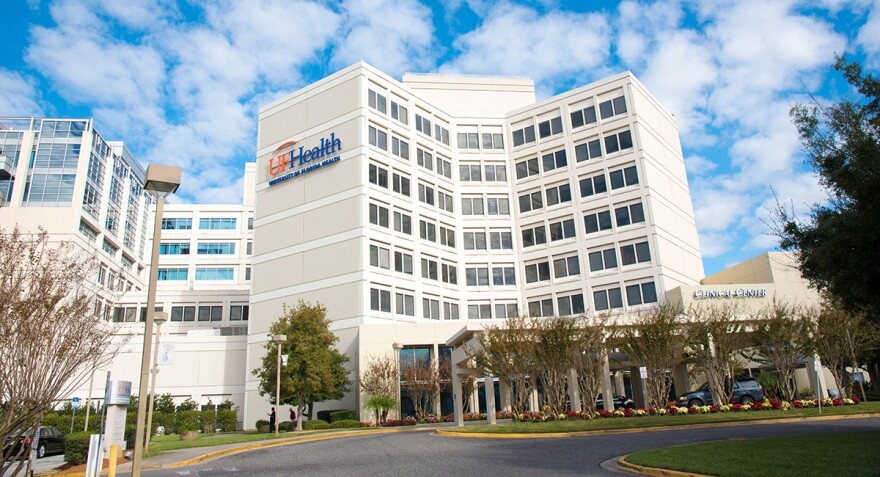If the Jacksonville City Council gives the OK to Mayor Lenny Curry’s annual budget proposal, UF Health Jacksonville, which serves as a safety net for many uninsured and underinsured patients, could receive as much as $15 million in the coming fiscal year. Curry is also proposing for $120 million in local dollars to go fixing the hospital’s city-owned facilities over the next six years as a part of his capital improvement plan.
Saying his budget represents a “commitment to health care in this community,” Curry said during his Monday budget presentation that the hospital would receive $20 million in year two and $25 million in beyond year five.
UF Health Jacksonville CEO Leon Haley said the money would go a long way to helping the downtown hospital make high-priority upgrades to its fire system, generators, air conditioning and roofs, in addition to alleviating overall financial pressure the institution faces as a nonprofit.
“Many of those (alone) will cost more than the $15 million,” he said.
Haley said in future years, the hospital would use city capital improvement funds to renovate operating rooms and other facilities. He added the hospital is already be on track to make these changes, but without the boost in city help, they will take much longer to complete.
“And you hope that nothing deteriorates in the short term and then you have to do an emergency fix,” he said.
UF Health Jacksonville is the only pediatric and adult Level 1 trauma center in Northeast Florida and Southeast Georgia, meaning it’s the hospital most capable of dealing with life-threatening injuries. As one of Florida’s 15 “safety-net” hospitals, UF Health also cares for a higher-than-average percentage of uninsured patients. According to a 2010 analysis by the hospital, it rendered more than $80 million in unreimbursed care that year.
One major way hospitals get reimbursed for uninsured care is through a federal, state and local match program called the Low Income Pool. The program, which was almost phased out by President Barack Obama in 2016 after Florida refused Medicaid expansion, was renewed under President Donald Trump last August.
The $1.5 billion pot of shared funds is doled out to hospitals depending on how much uninsured care they give. It can go to hospitals, rural health clinics, medical-school physician practices and other clinics approved by the feds. But because it relies on matching local funds, including hospital taxing districts, the overall amount that will be available isn’t expected to reach the full $1.5 billion.
“Obviously we’re before the legislative session, and so we don’t know exactly how that’s going to play out,” Haley said.
He said, between Medicaid reimbursement and some changes in LIP and other funds, the hospital expects a decrease of about $5.6 million for the upcoming fiscal year.
Haley said UF Health Jacksonville is looking for ways the city and the state can up their contributions to help draw down more federal LIP dollars in the following year.
“Additional dollars, whether they come from reimbursement, from Medicaid, commercial insurance, LIP — those will also be an additional help for continuing to try and grow the organization,” he said.
The City Council’s Finance Committee will go through the budget line by line before it goes to the full legislative body for approval. Budget work must be complete before the start of the next fiscal year October 1.
Copyright 2020 WJCT News 89.9. To see more, visit WJCT News 89.9. 9(MDAyNDY5ODMwMDEyMjg3NjMzMTE1ZjE2MA001))







